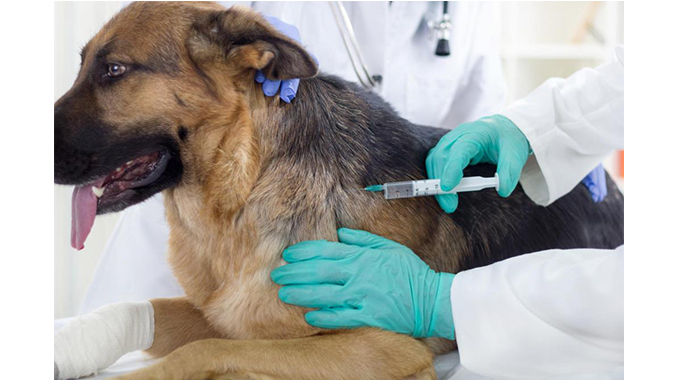Kwekwe rolls out mass rabies vaccination program

Michael Magoronga, Midlands Correspondent
A 5-YEAR-OLD girl died from rabies after being bitten by a stray dog in Kwekwe prompting authorities to roll out a mass vaccination programme against the virus.
The juvenile’s death last month has prompted authorities in Kwekwe district to intensify measures to vaccinate dogs and cats across the district.
Kwekwe District Veterinary Services Officer Dr Takudzwa Magoba said the district has intensified vaccination measures but was quick to point out that there was no outbreak.
“We lost a child in the Melrose area after she was bitten by a stray dog. We cannot say there is an outbreak, but we have just intensified measures to ensure that every dog is vaccinated across the district. The unfortunate part is that once a human shows clinical signs, it is not curable so it is better we prevent it,” she said.
Dr Mugoba said vaccination is done every six months, only that this time it is covering the wider parts of Kwekwe including rural areas.
“This is a programme that we do every year after every six months. We are covering Kwekwe, Redcliff, Zhombe, Crossroads and Bob Swift. We will try to target all dogs and cats across the district,” she said.
She urged members of the public to get their pets vaccinated, keep their pets confined and protect them from predators.
“People should ensure that their pets remain confined especially after being vaccinated and also report any stray animals to local authorities. Also, report any cases of bats so that they may be removed from homes. Consider the rabies vaccine if you are travelling or often around animals that may have rabies for prevention,” she warned.
She said stray dogs and cats will be dealt with by local authorities working with police.
Rabies is an invariably fatal disease to which all mammals are potentially susceptible including humans if treatment is not received.
In humans, there is no treatment for the virus once clinical signs appear and prevention of infection is vital.
The virus is usually transmitted through the saliva of an infected animal, normally via a bite.











Comments